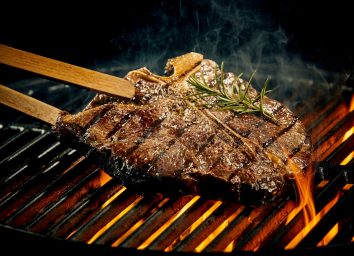Secret Side Effects of Eating Grilled Foods, Says Science
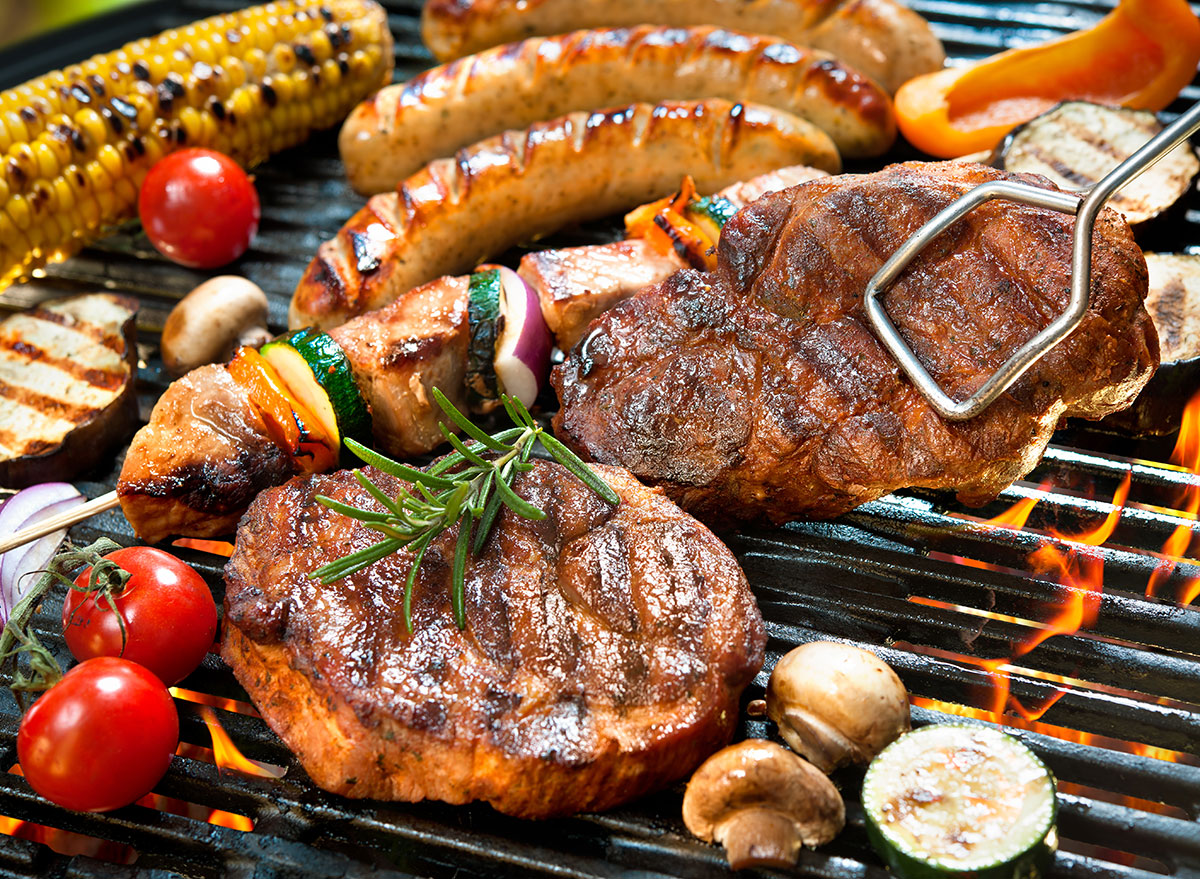
Summer is the season of grilling. The warm temps are perfect to get the grill going for a late or early dinner, a weekend cookout, or an all-day BBQ with friends. Whether you grill using gas or charcoal, grilling can come with some unique side effects to your health compared to other cooking methods.
Here's what you need to know about what happens to your body when you indulge in grilled foods, according to registered dietitians.
Eating grilled meats can remove years to our lives and increase our risk of or worsen health issues.
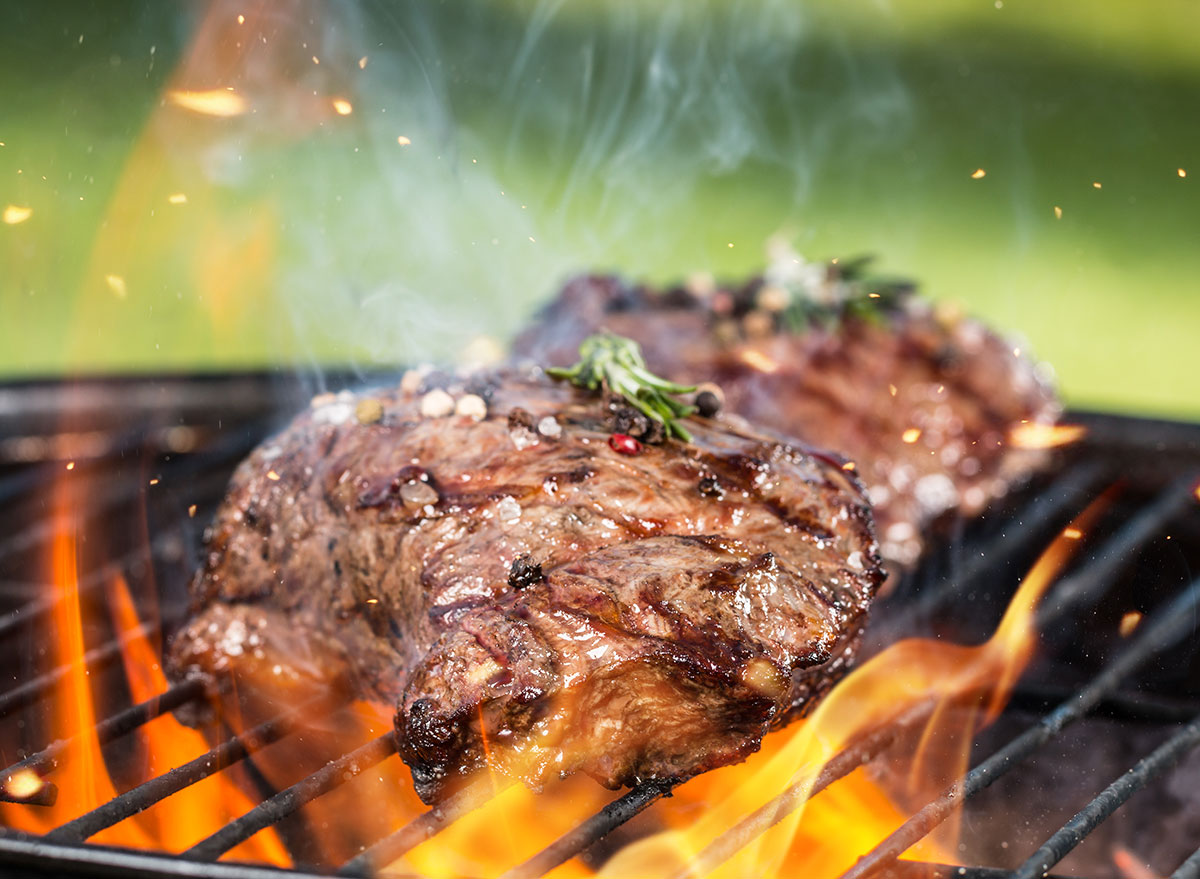
"Eating AGEs, advanced glycation end products, can promote oxidation and inflammation which elevates our risk of or worsening chronic health issues like heart disease, Type 2 diabetes and Alzheimer's disease," says Libby Mills, MS, RD, registered dietitian and spokesperson for the Academy of Nutrition and Dietetics. "And, pun intended, AGEs may contribute to the aging process. That sizzle and 'sear' that leaves the iconic grill marks on our meats, is a result of cooking over a high temperature and dry heat. These cooking conditions can form advanced glycation end products or AGEs."
It may worsen your allergies.
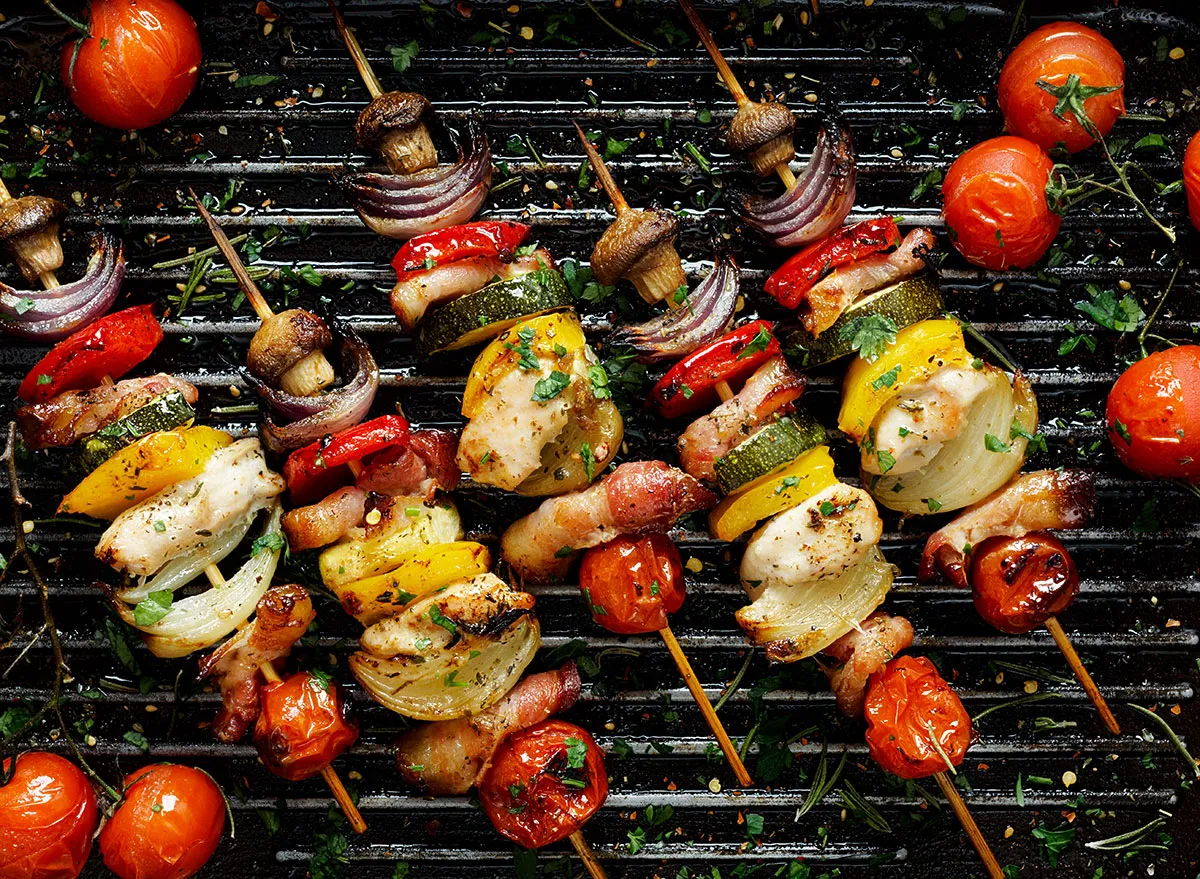
"Grilling can cause increased histamine levels which can have an allergic reaction, especially for people who are sensitive," says Jonathan Valdez, RDN, founder of Genki Nutrition and spokesperson for New York State Academy of Nutrition and Dietetics. "The exact mechanism is not known, but the speculation may be the evaporation of liquids causing a concentration of histamine."
Grilling can cause weight gain.
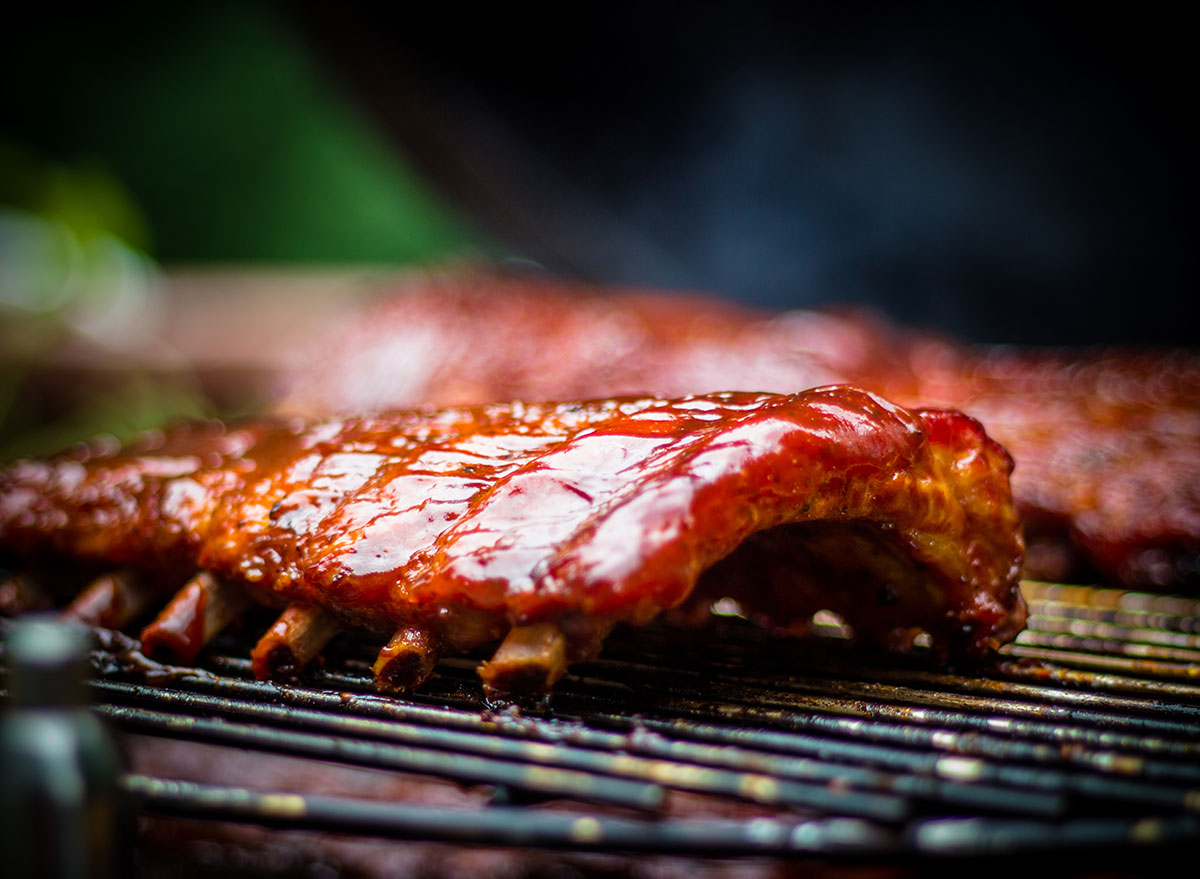
"Grilling is a great way to cook with less fat, but adding sugary sauces that can hide extra calories," notes Mills. "Slathering on or basting sugary sauces can add extra calories that can lead to weight gain. Don't wait for the smoke to clear to look for added sugar. When choosing the recipe for your next signature BBQ sauce or reading the label for a premade teriyaki, look for sources of added sugar like sucrose, dextrose, fructose, table sugar, syrups, honey, maple syrup or molasses. Keep in mind that ingredients are listed on the food label in the order of greatest quantity first."
Instead, she suggests you opt for rubs of spices and herbs, for example, cumin, paprika, and chipotle or oregano, lemon, and garlic.
READ MORE: 12 Hidden Sources of Sugar at Your Barbecue (And How to Avoid Them)
It could increase your risk of cancer.
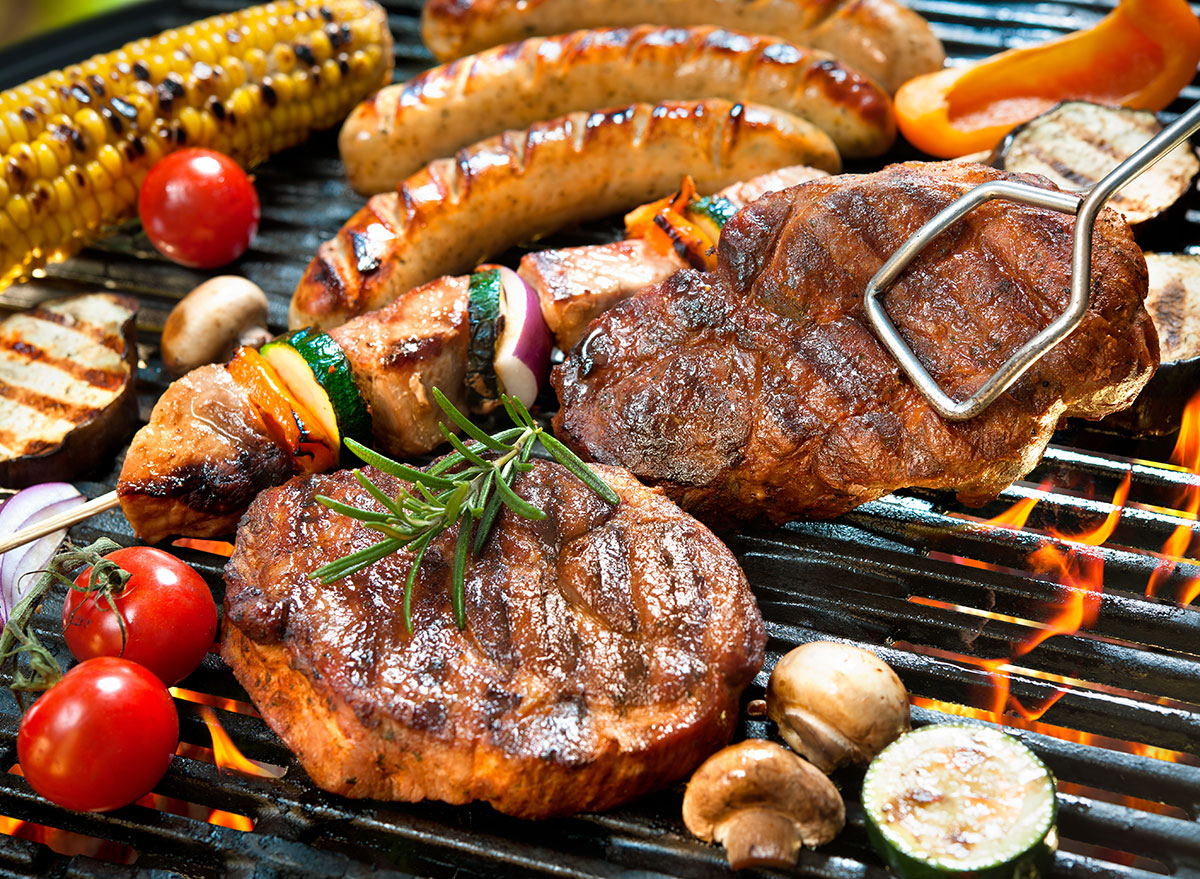
"Grilling causes an increase in benzo[a]pyrene, a type of Polycyclic Aromatic Hydrocarbons (PAHS) which is known to be cancerous due to the incomplete combustion of carbon-containing materials, also known as the fat from meat, substances from vegetables, the heats source (i.e coal, wood)," says Valdez.
"The smoke that is formed is what contains the PAHS. The heat source it is hitting, how close the heat source is, the duration the foods are being cooked, and the type of meat that is cooking will also dictate how much PAHS is formed. For example, barbecuing with charcoal plus wood chips had the highest increase in benzo[a]pyrene during grilling for most foods. Charcoal alone had the highest PAHS for only burger meats."
Grilling can also lower our risk of cancer.
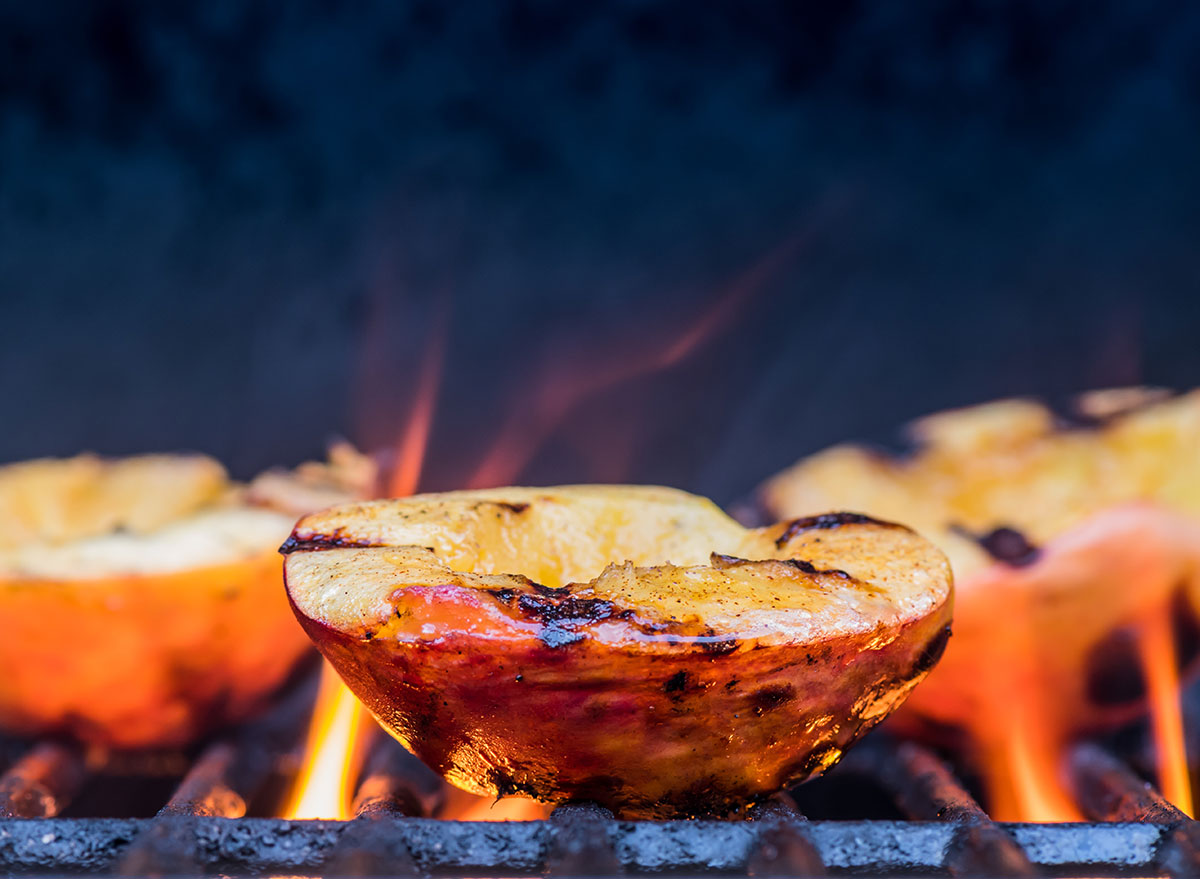
"The phytonutrients we get from eating fruits and vegetables work as antioxidants in our bodies to help prevent free radical damage that may cause cancer. Grilling veggies and fruits make eating these antioxidant-rich foods super delicious and available throughout the week. Delicious right off the grill or later for leftovers, grilling vegetables and fruits is a setup for eating more of them," says Mills.
"Grilled vegetables make great sides on their own or added to bean, grain or green salads, blended into gazpacho or layered into a vegetable lasagna. Grilled fruits pair well with savory and spicy meats, as well as make delicious desserts. Rub pineapple and mango with Jamaican seasoning. Kebab watermelon, strawberries, and peaches. Drizzle with balsamic vinegar or dip into yogurt."
It can enhance your nutrient intake.
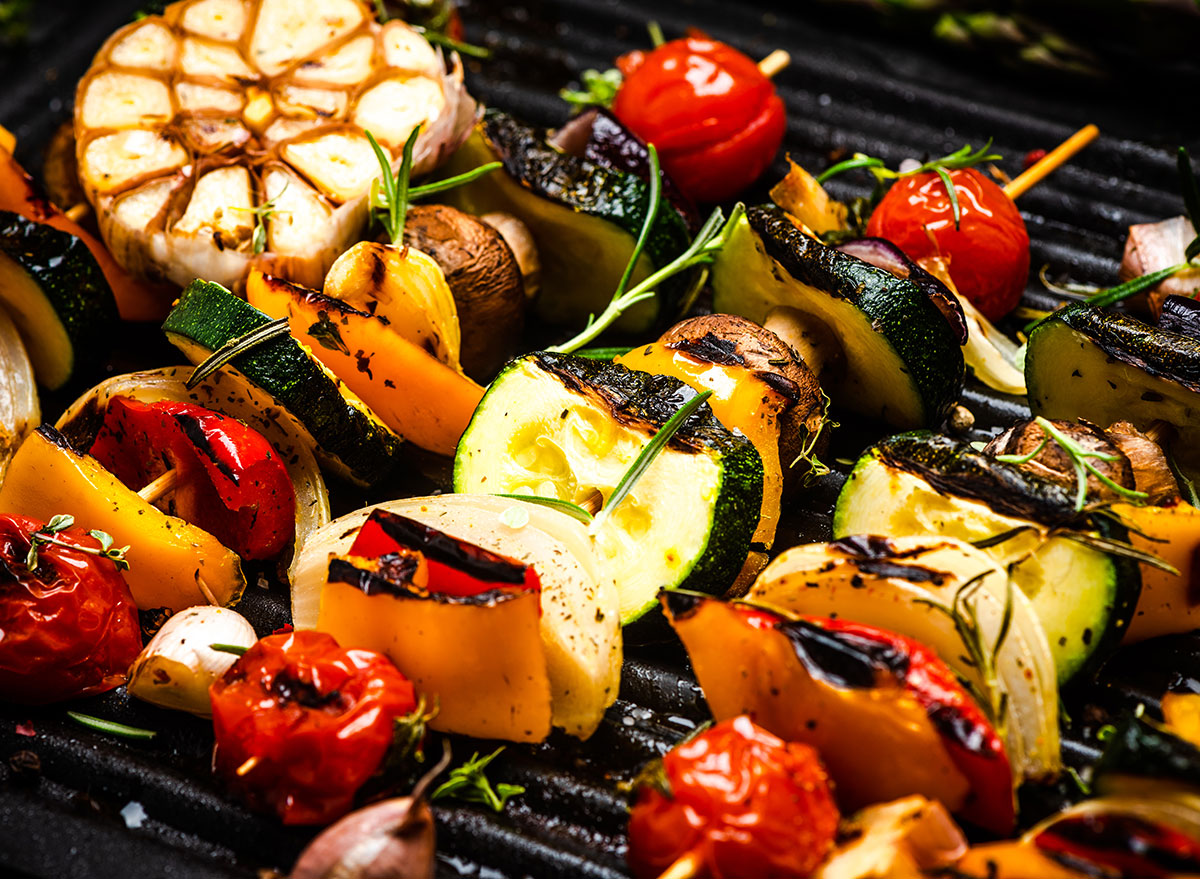
"In some vegetable grilling or cooking, it also breaks down the cellulose to have easier access to some nutrients and antioxidants like lycopene, lutein, and betacarotene," says Valdez.
Grilling promotes more plant-based eating.
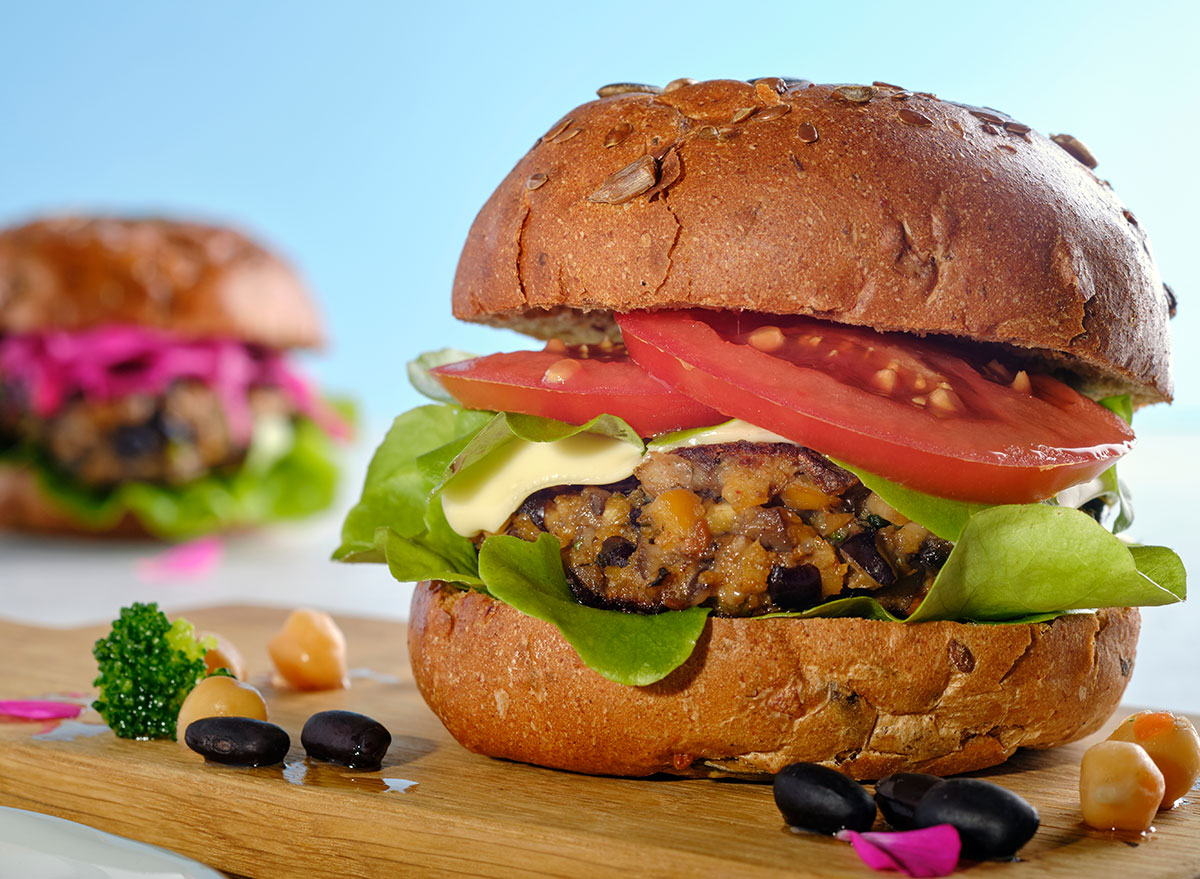
"Plant-based burgers can be made of beans, peas, grains, mushrooms, and greens, and just like if you made them at home can include onions, corn, and carrots. Some are vegetable-based burgers, while others are made with soy, pea protein, wheat, grains, and legumes to resemble meat in appearance and texture," says Mills. "The protein in plant-based burgers can range from several grams to nearly matching that of a traditional meat patty. Plant-based eating doesn't mean that you are vegetarian. However, research has shown that eating more plant-based food can lower your risk of heart disease, high blood pressure, and diabetes. And, you just may live longer as well."
Read this next:

